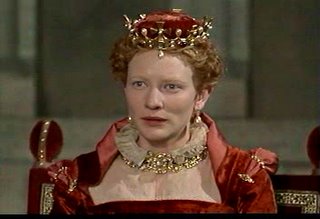2. Björk as Selma Jezkova in Dancer in the Dark (2000)

The fans of Icelandic pop icon Björk have always known that she is a true artist and have always had an inkling that she would do well in a musical (as evidenced by her performance in the music video for "It's Oh So Quiet"), but we probably never expected that she would be able to give a downright haunting, mesmerizing, heartbreaking portrayal of a blind martyr of a mother. Her role in Lars von Trier's Dancer in the Dark is typical for the heroines of the director's recent projects (Emily Watson and Nicole Kidman, both on this list), but Björk's quiet energy, never subtler, makes Selma Jezkova one of the more endearing. Just like in many of her more brilliantly understated works, she speaks in whispers in this film, but her eyes are never quiet. In the key scenes of the film, musical or otherwise, her elfish face speaks of an inherent sadness and a strong conviction that effortlessly stir (or twist) the heart of the viewer. Anyone who has loved his or her mother or who has been a mother herself would be drawn in by Björk's almost mystical performance. The last sequence is one of the most agonizing that I've seen in any film, and it is made more astoundingly intense by Björk's amazing handling of what could have been an overly hysterical part. She deservedly won at Cannes but was insanely overlooked by the Academy. Here's hoping that she make another film, blow audiences away again, and prove too hard to ignore by anyone this time. Heck, even with that swan costume, I'd have loved to see her up the stage to receive the Oscar.
#3: Cate Blanchett as Queen Elizabeth I in Elizabeth (1998)








